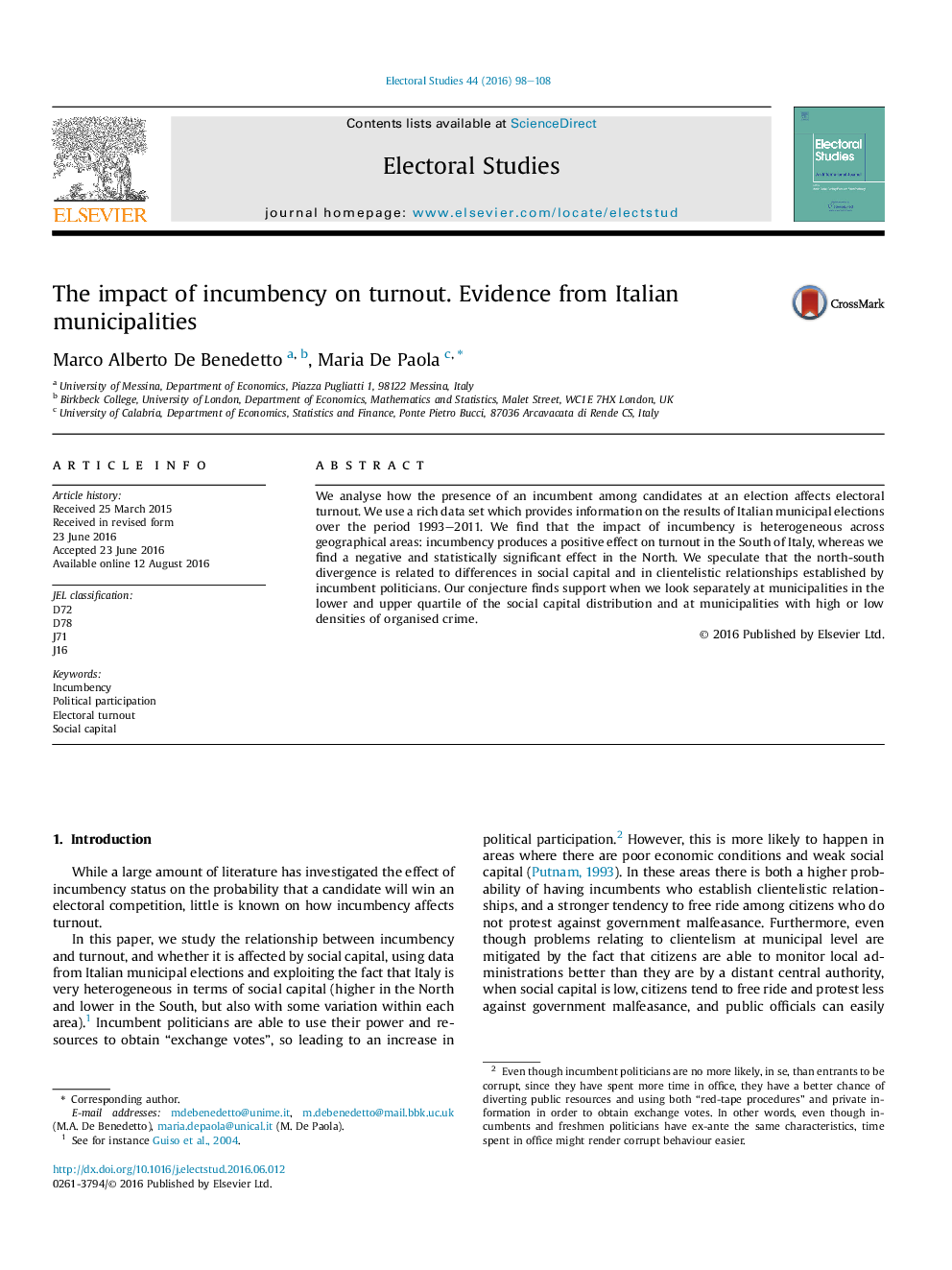| Article ID | Journal | Published Year | Pages | File Type |
|---|---|---|---|---|
| 1051653 | Electoral Studies | 2016 | 11 Pages |
•We study how the presence of an incumbent among candidates at an election affects electoral turnout in Italy.•We find a heterogeneous impact of incumbency across geographical areas.•The divergence is essentially due to clientelistic relationships established by incumbent politicians in the South of Italy.•We find similar results when we look separately at towns characterized by high/low density of organised crime.
We analyse how the presence of an incumbent among candidates at an election affects electoral turnout. We use a rich data set which provides information on the results of Italian municipal elections over the period 1993–2011. We find that the impact of incumbency is heterogeneous across geographical areas: incumbency produces a positive effect on turnout in the South of Italy, whereas we find a negative and statistically significant effect in the North. We speculate that the north-south divergence is related to differences in social capital and in clientelistic relationships established by incumbent politicians. Our conjecture finds support when we look separately at municipalities in the lower and upper quartile of the social capital distribution and at municipalities with high or low densities of organised crime.
